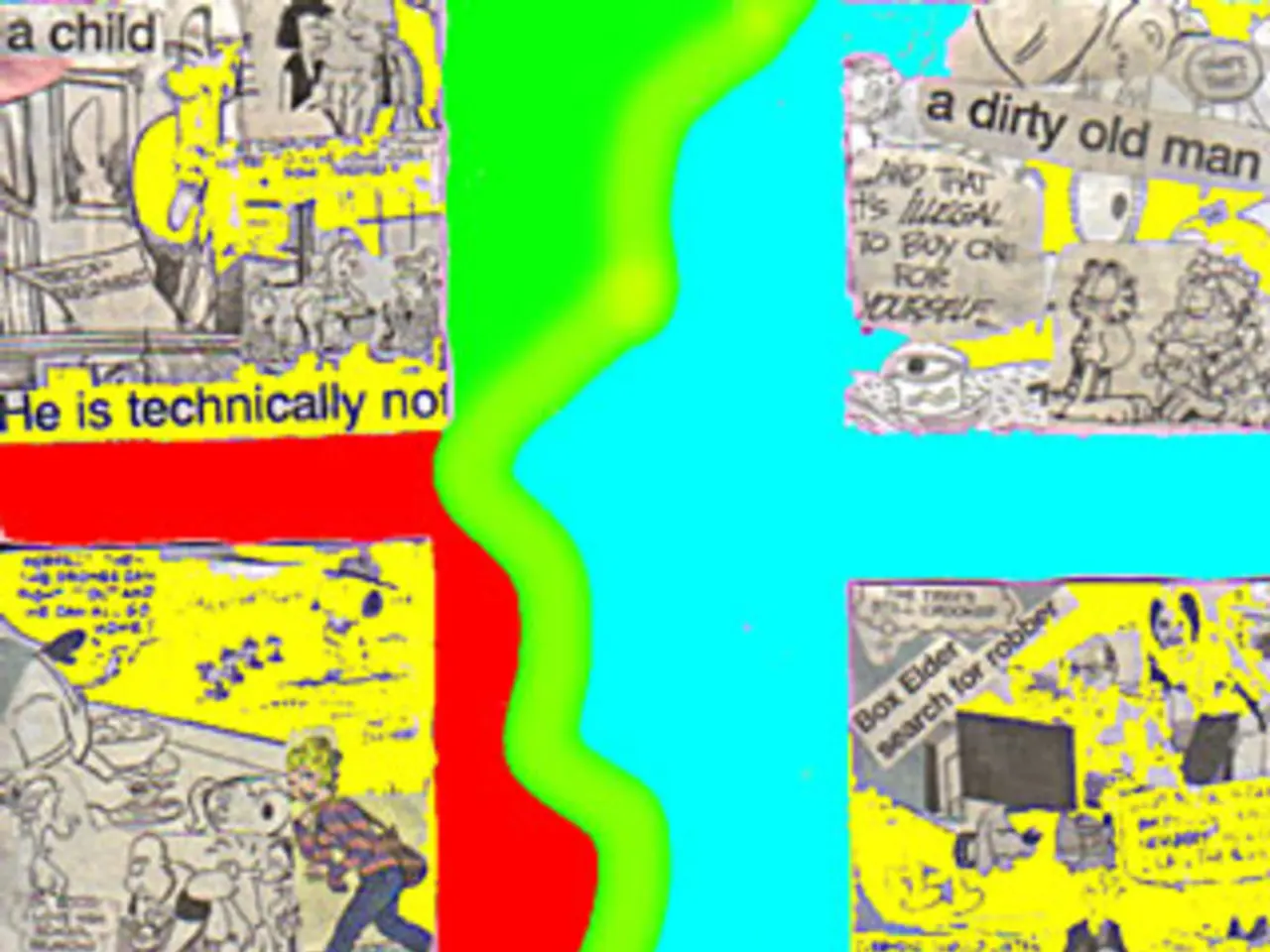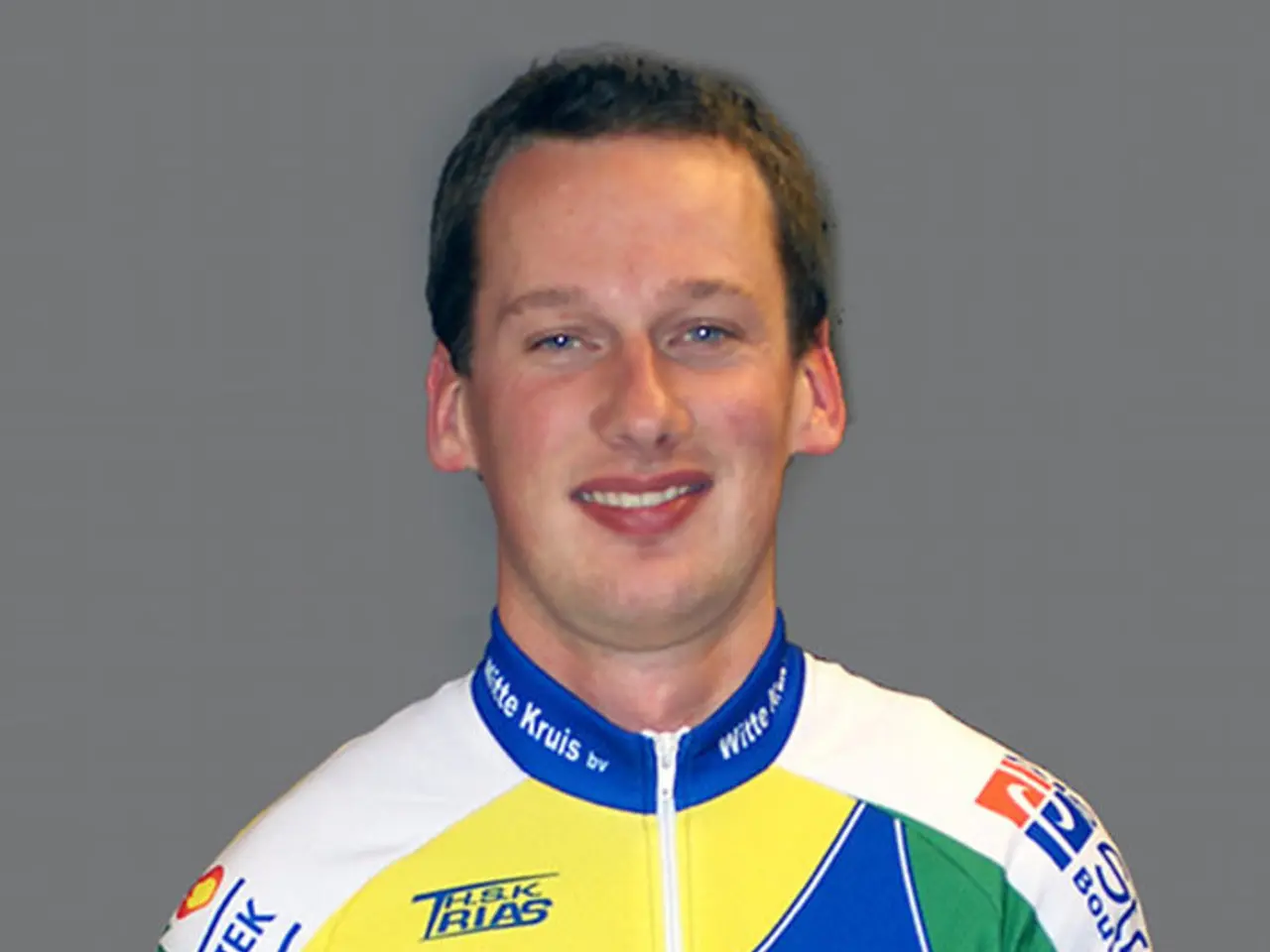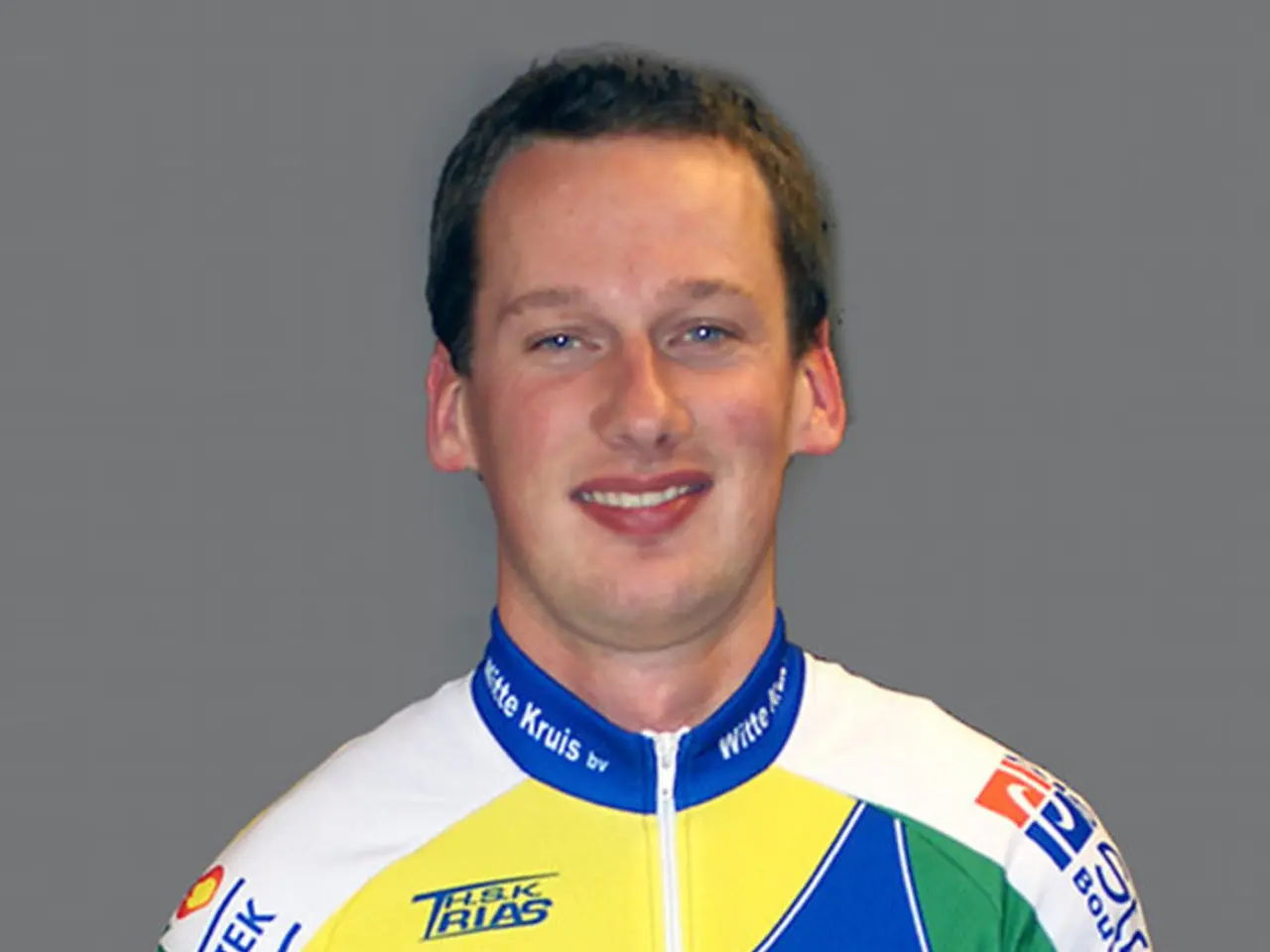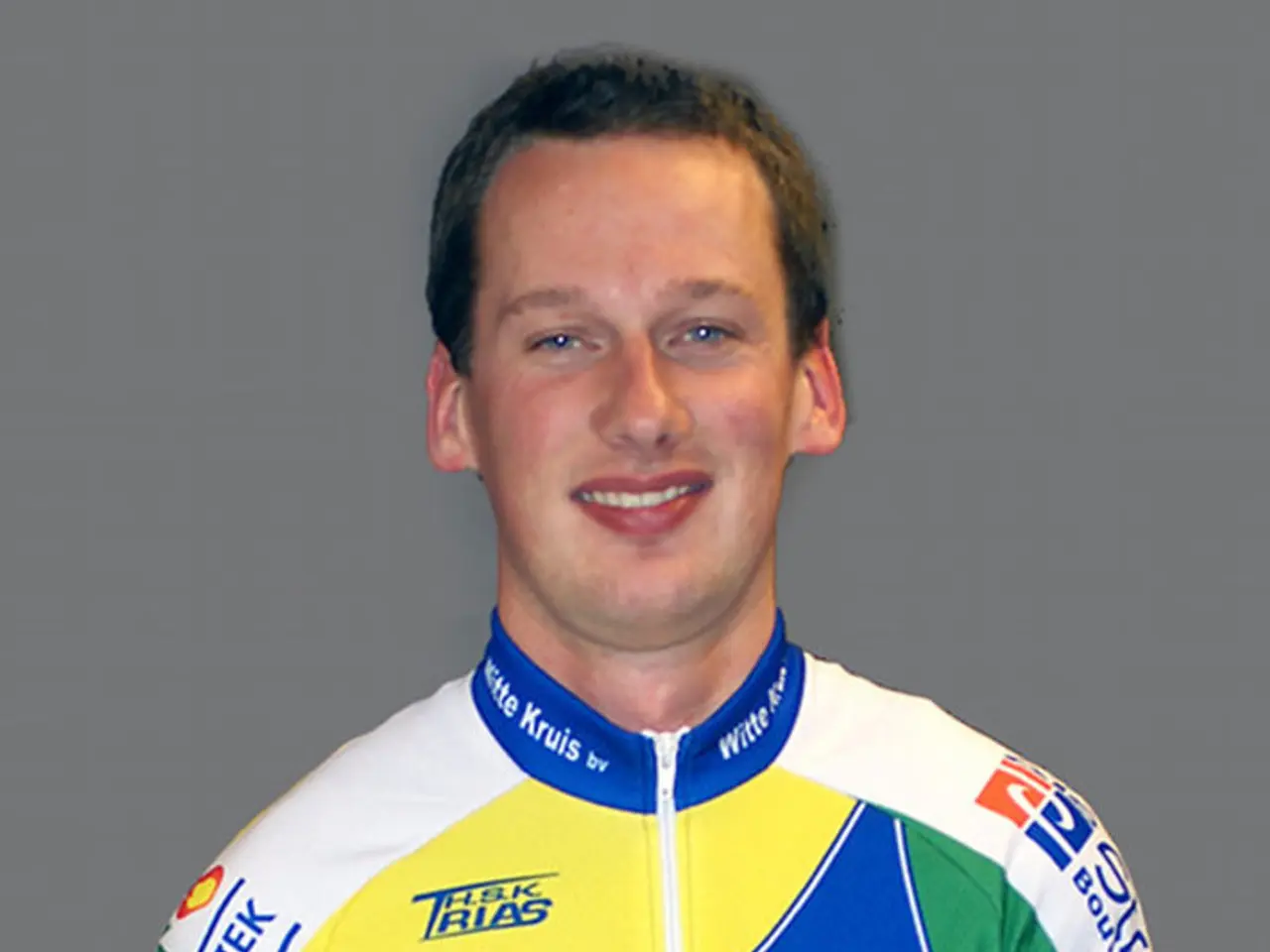Exploration of Truth and Deception in Director Miike Takashi's Film "Sham"
In the realm of cinema, Japanese director Takashi Miike has made a name for himself with his audacious works that defy genre conventions and scenes of extreme violence [8]. His latest offering, the social drama "Sham", is no exception. The film, inspired by a real-life case that occurred in Fukuoka, Japan, in 2003 [5], delves deep into the complexities of education, bullying, PTSD, overbearing parents, and the role of the news media [6].
Miike, however, is cautious about labelling "Sham" as a film based on a true story [1]. He draws a clear line between the "truth" of the real case and the fictionalized "film," emphasizing that the movie is not a documentary or direct adaptation but an artistic interpretation inspired by real events [1].
The film presents multiple subjective perspectives, notably those of the accused teacher and the boy's mother, without definitively confirming which version is "correct" [2][3]. It encourages viewers to listen to and critically assess the narratives, as it explores how social pressures, media framing, familial dysfunction, and psychological issues blur the lines between fact and interpretation.
"Sham" critiques societal tendencies to favor convenient "sham apologies" for the sake of social cohesion instead of confronting uncomfortable truths, showing how those insisting on truth-telling are marginalized [2]. The film’s courtroom drama structure deepens this exploration by refusing to present a single reliable narrator and instead exposes the subjective nature of memory and testimony [3].
The story revolves around elementary school teacher Yabushita, who is accused of abusing his student, Takuto, by Takuto's parents [4]. The mother of Takuto, Ritsuko, contacts a tabloid reporter, Narumi, to expose Yabushita [7]. Shibasaki Kō, playing the mother of the allegedly abused boy, offers a restrained yet expressive performance, contrasting with Ayano Gō's intense and emotional portrayal of the teacher [3]. Yabushita's only salvation is the support of his wife, Nozomi, played by Kimura Fumino.
The whole cast, including Kamenashi Kazuya as the reporter and Kobayashi Kaoru as a lawyer, delivers outstanding performances, contributing to the film's exploration of complex social issues. Miike's hands-off approach to acting allows actors to perform naturally without excessive emotion [1], resulting in a nuanced and gripping portrayal of the characters and their struggles.
"Sham" shares similarities with Miike's own 2011 work Hara-Kiri: Death of a Samurai, particularly in structure, tone, and the anxiety it creates in its audience [1]. However, it may not offer the same level of shock as Miike's past works like Ichi the Killer, but it is a uniquely "Miike-esque" experience, pushing boundaries and inviting viewers to question the elusiveness of truth in complex social conflicts.
In a world where the media is often criticized for creating problems, Miike believes that the media is not solely responsible but that the consumers of media also contribute to the issue [9]. He mentions Koreeda Hirokazu's Shoplifters as an example of a film that resonates globally despite local values and norms, showing that impactful storytelling can transcend cultural barriers.
In conclusion, "Sham" is a thought-provoking exploration of truth and perception in complex social conflicts, blurring the lines between fact and fiction to encourage viewers to question and critically assess the narratives presented. It is a must-watch for fans of Miike's work and those interested in social dramas that challenge conventional narratives.
References: 1. https://www.japantimes.co.jp/culture/2018/12/11/films/sham-movie-review-takashi-miike-fukuoka-case/ 2. https://www.npr.org/2018/12/14/678046779/sham-review-takashi-miike-takes-on-the-media-in-this-dark-drama 3. https://www.rogerebert.com/reviews/sham-2018 4. https://www.imdb.com/title/tt7632202/ 5. https://en.wikipedia.org/wiki/Sham_(film) 6. https://www.hollywoodreporter.com/review/sham-film-review-1171658 7. https://www.japantimes.co.jp/culture/2018/12/12/films/sham-takashi-miike-kazuya-kamenashi-koreeda-hirokazu/ 8. https://www.imdb.com/name/nm0001605/ 9. https://www.theguardian.com/film/2018/dec/11/sham-takashi-miike-film-review
- The global audience connects with "Sham," a social drama by Japanese director Takashi Miike, as it delves into complexities of education, bullying, PTSD, overbearing parents, and the role of the media.
- Takashi Miike, in an interview, shares that "Sham" is not a film based on a true story, but an artistic interpretation inspired by real events, emphasizing the distinction between truth and fiction.
- The movie presents multiple perspectives, such as those of the accused teacher and the boy's mother, without establishing a single "correct" narrative, encouraging viewers to critically evaluate the narratives presented.
- Business magazine reviewers, like those at The Hollywood Reporter, applaud the exceptional performances of the cast, including Shibasaki Kō as the boy's mother and Kamenashi Kazuya as the tabloid reporter, in their portrayal of complex social issues.
- In media interviews, Miike expresses that while the media can sometimes be criticized for creating problems, it is not solely responsible, since media consumers also contribute to the issue.
- Miike's "Sham" shares similarities with his own 2011 work, "Hara-Kiri: Death of a Samurai," in structure, tone, and audience anxiety, offering a uniquely "Miike-esque" experience that pushes boundaries and invites viewers to question the elusiveness of truth in complex social conflicts.








